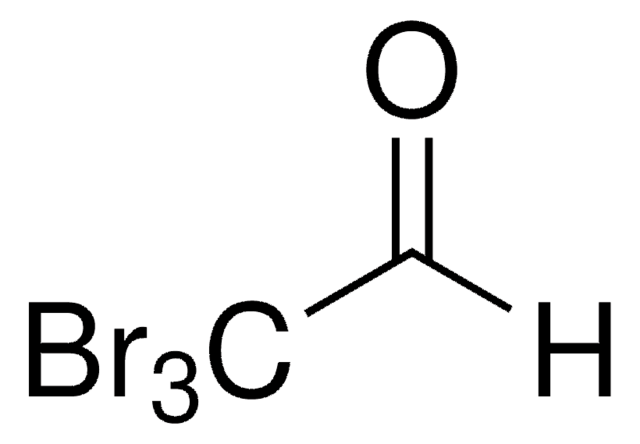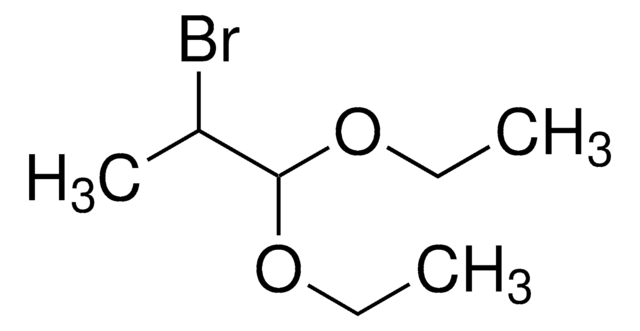317276
Chloroacetaldehyde solution
~55 wt. % in H2O
Synonyme(s) :
α-Chloroacetaldehyde, 2-Chloro-1-ethanal, 2-Chloroacetaldehyde, 2-Chloroethanal, Monochloroacetaldehyde
About This Item
Produits recommandés
Forme
liquid
Concentration
~55 wt. % in H2O
Indice de réfraction
n20/D 1.4036
Densité
1.236 g/mL at 25 °C
Groupe fonctionnel
aldehyde
chloro
Chaîne SMILES
[H]C(=O)CCl
InChI
1S/C2H3ClO/c3-1-2-4/h2H,1H2
Clé InChI
QSKPIOLLBIHNAC-UHFFFAOYSA-N
Vous recherchez des produits similaires ? Visite Guide de comparaison des produits
Application
- Etheno derivatives of nucleotides.
- 2,3-Disubstituted pyrroles by Hantzsch reaction.
- Aminotetrahydronaphthalene ketopiperazine scaffolds as potent MCH-R1 antagonists.
Mention d'avertissement
Danger
Mentions de danger
Classification des risques
Acute Tox. 1 Inhalation - Acute Tox. 2 Dermal - Acute Tox. 3 Oral - Aquatic Acute 1 - Carc. 2 - Eye Dam. 1 - Skin Corr. 1B - STOT SE 3
Organes cibles
Respiratory system
Code de la classe de stockage
6.1A - Combustible acute toxic Cat. 1 and 2 / very toxic hazardous materials
Classe de danger pour l'eau (WGK)
WGK 3
Point d'éclair (°F)
143.6 °F - closed cup
Point d'éclair (°C)
62 °C - closed cup
Équipement de protection individuelle
Eyeshields, Gloves, type ABEK (EN14387) respirator filter
Faites votre choix parmi les versions les plus récentes :
Déjà en possession de ce produit ?
Retrouvez la documentation relative aux produits que vous avez récemment achetés dans la Bibliothèque de documents.
Les clients ont également consulté
Notre équipe de scientifiques dispose d'une expérience dans tous les secteurs de la recherche, notamment en sciences de la vie, science des matériaux, synthèse chimique, chromatographie, analyse et dans de nombreux autres domaines..
Contacter notre Service technique















![Imidazo[1,2-a]pyridine 99%](/deepweb/assets/sigmaaldrich/product/structures/109/863/81ccb63f-07c6-4271-b317-1ba58979d455/640/81ccb63f-07c6-4271-b317-1ba58979d455.png)

